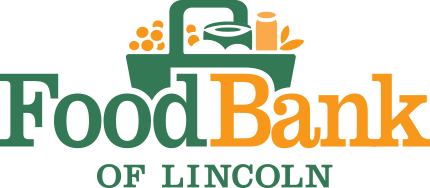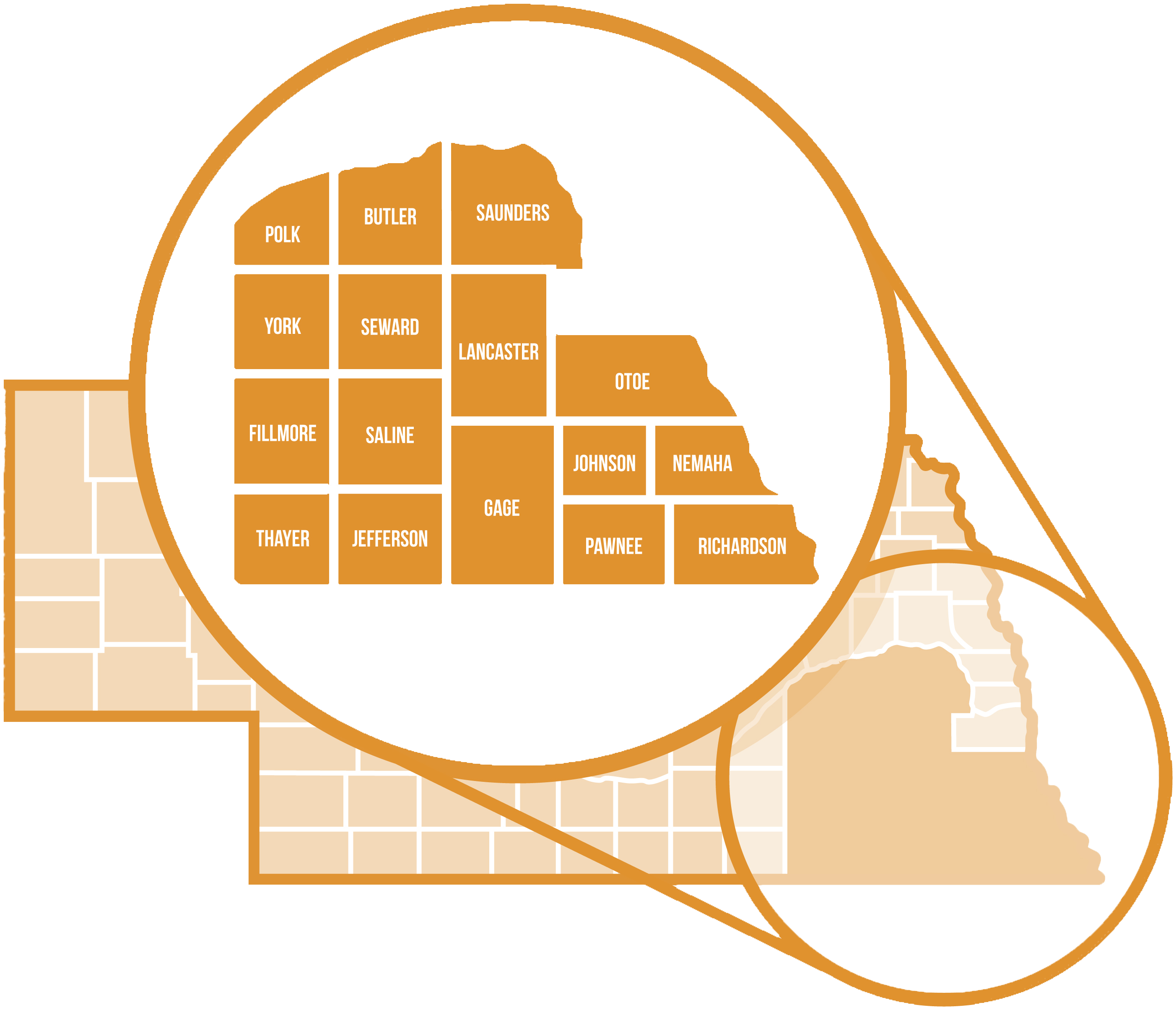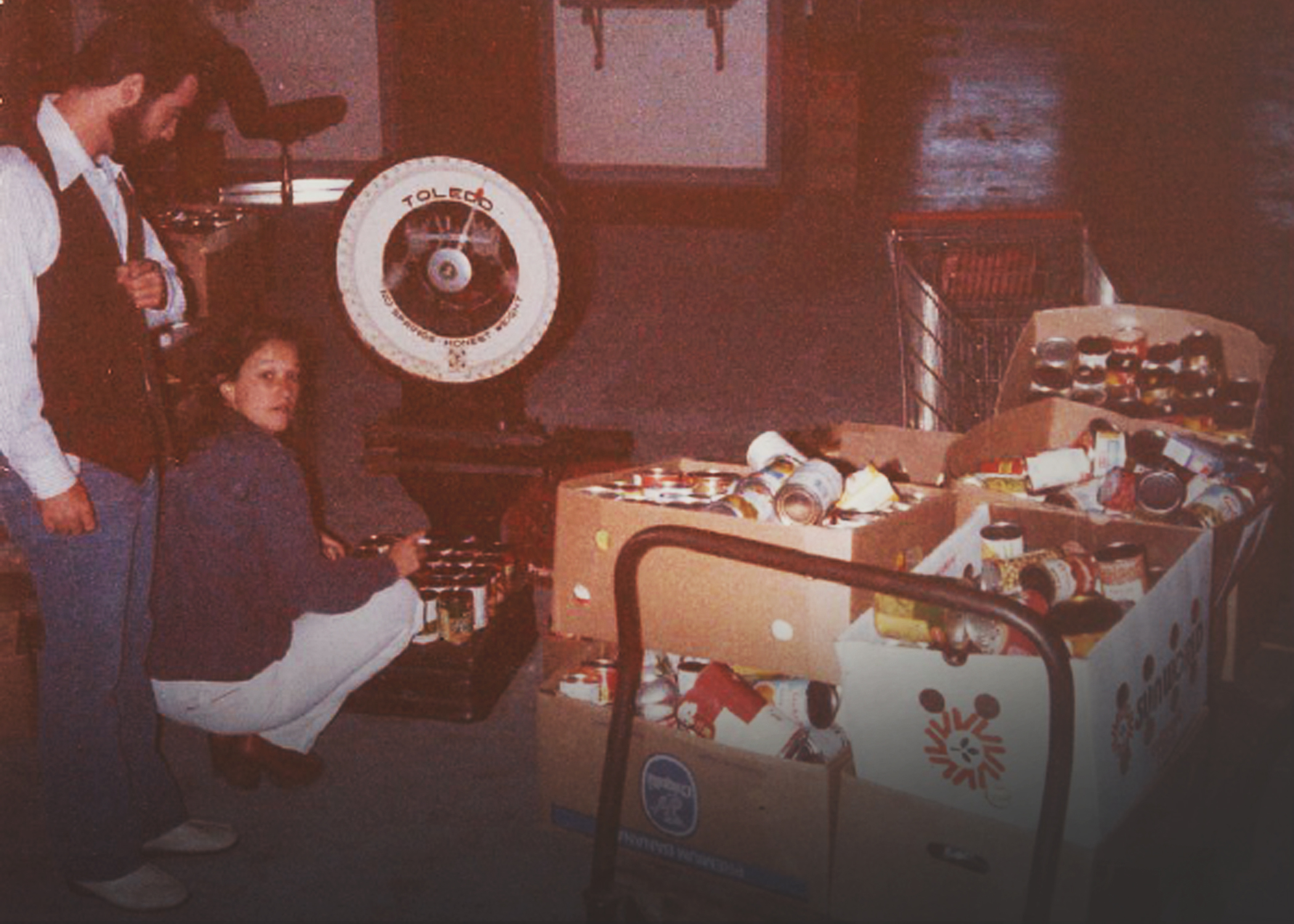About Us
Since our founding in 1982, we’ve been focused on our mission to alleviate hunger in Southeast Nebraska.
From sun up to sun down (and even longer), our dedicated team, volunteers and partner agencies work together to put food on the tables of neighbors facing hunger, right here at home. The Food Bank of Lincoln is a proud member of Feeding America.
We serve 16 counties in Southeast Nebraska: Polk, York, Fillmore, Thayer, Butler, Seward, Saline, Jefferson, Saunders, Lancaster, Gage, Otoe, Johnson, Pawnee, Nemaha and Richardson.
Within these 9,200 square miles, an estimated 64,510 people are food insecure, including 20,320 children under the age of 18. This means 1 in 7 neighbors—and 1 in 5 children—may not have reliable and consistent access to enough food to live active, healthy lives.
Mission
To alleviate hunger in Southeast Nebraska.
Vision
Nourishing our communities to end hunger.
Values
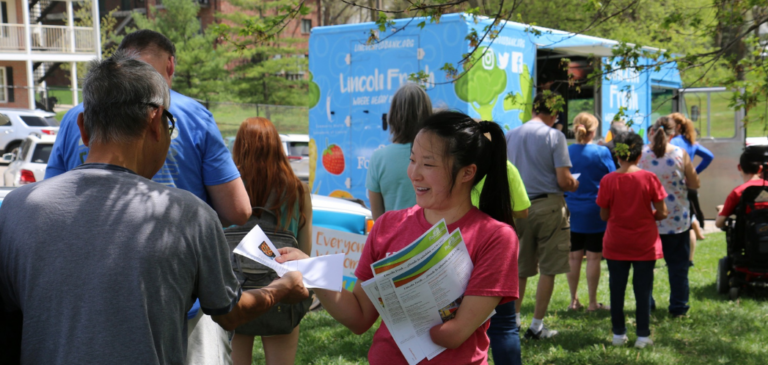
Compassion
We aspire to be empathetic, to empower one another, show authentic kindness and prioritize dignity.
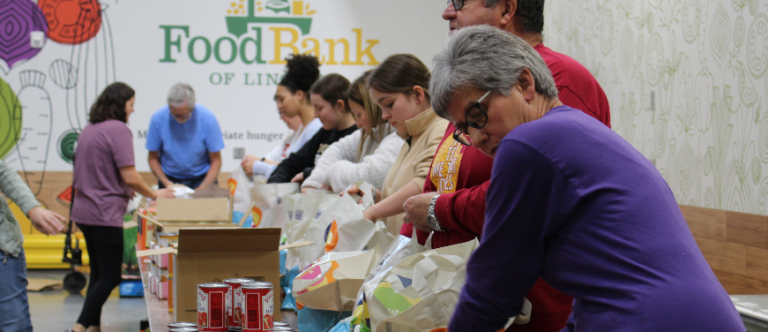
Collaboration
We aspire to be collaborative with each other, neighbors we serve, partners and the community at large. We will seek win-win-win solutions.
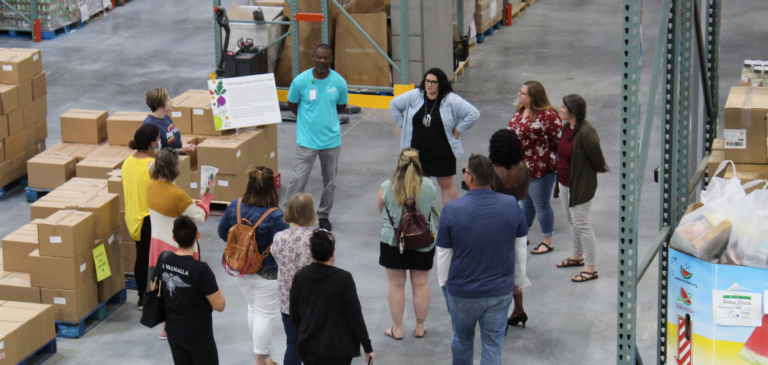
Responsibility
We aspire to be completely accountable to our community, neighbors, donors, volunteers, staff and Board to do our best to alleviate hunger in Southeast Nebraska.
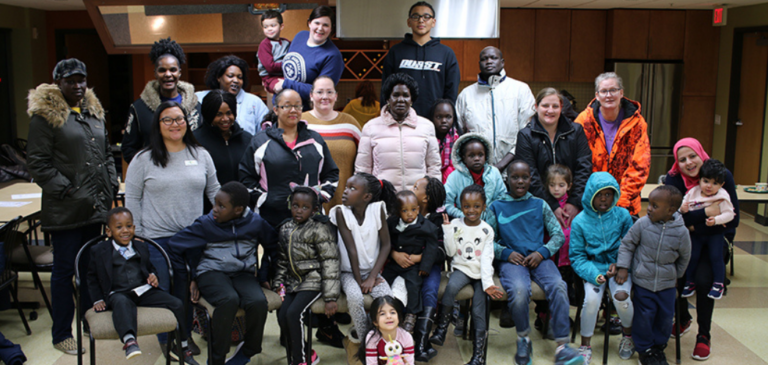
Education
We aspire to educate our community, stakeholders and ourselves about issues that create hunger and about programs that alleviate hunger. We will seek new solutions.
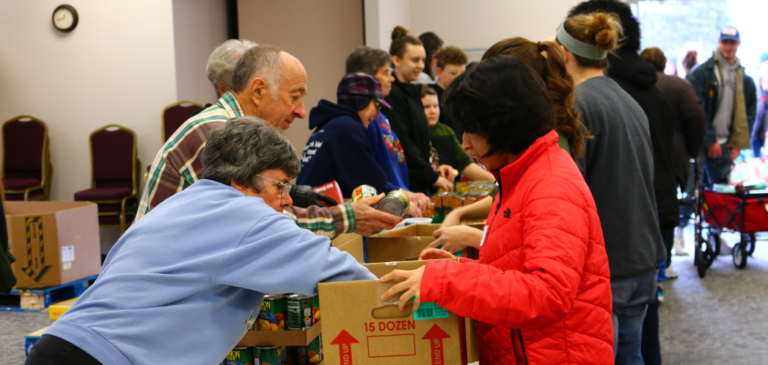
Diversity
We aspire to embrace all races, genders, including gender identity and expressions, religions, sexual orientations, economic levels, ages, physical abilities, job statuses and marital statuses in everything we do.
How We Alleviate Hunger
In fiscal year 2024, we connected neighbors in Southeast Nebraska to 10.9 million meals. A variety of programs, partnerships and services, along with support from friends like you helps make that possible.
Our History
During the first 20 years of the Food Bank’s operation, donations were inventoried one item or case at a time. Agency partners selected products and “checked out” by weighing items box by box. More efficient inventory and data systems were introduced in the late 1990s and early 2000s.
1980s
1982
The Food Bank of Lincoln, Inc. opened its doors at 3642 Adams St., a small garage-sized building.
1983
The Food Bank’s first full operating year resulted in 405,988 pounds of food or approximately 317,170 meals.
1986
The Food Bank moved to a new location, 57th and Russell Drive, which was approximately 7,000 sq. ft.
1990s
1997
The organization moved to its third location, 4840 Doris Bair Circle, with nearly triple the space.
2000s
2001
The Food Bank hired Scott Young as Executive Director.
2004-2005
BackPack Program launched at Clinton Elementary School, serving 50 children.
2008
The Food Bank Board made a conscious effort to “step on the gas” during the recession, rather than adopting a conservative stance.
2010s
2010
The Food Bank hired its first SNAP (Food Stamp) Outreach worker.
2011
The first School Food Market was held, serving 117 students at Lincoln High School.
2012
The Food Bank began leasing 17,000 sq. ft. to house its growing Child Hunger Programs and the Vocational Opportunities in Community Experience Program, now Independence Academy.
2014
With a focus on shortening food lines, the Food Bank added Bridges Out of Poverty to its educational programs.
2019
Lincoln Fresh launched and distributed 108,647 pounds of fresh produce to 12,985 people in low-income areas in its inaugural year.
2020s
2020
Connected neighbors to more than 11.5 million meals, which included our single-largest month of meals in response to COVID-19.
2021
After serving as the Food Bank of Lincoln’s Executive Director for nearly 20 years, Scott Young retired. The Board of Directors selected Michaella Kumke to lead the Food Bank as President and CEO.
Connected neighbors to 13.3 million meals, a record for the Food Bank of Lincoln.
2022
After a capital campaign to raise over $10 million for the construction of a modern and more efficient facility, the Food Bank of Lincoln moves to its fourth location, 1221 Kingbird Rd. The new facility will enable the Food Bank to connect more people to more meals, increase access to healthy food and shorten food lines.
2023
Launched Hometown Fresh, a walk-through mobile food pantry committed to serving neighbors with limited access to food resources.
Learn More
For our partners, if you need documentation of our tax-exempt status, check out our Form 990. Learn more about our commitment to fiscal responsibility in our annual audit. Or, if you’re interested in using our name and logo, find what you need in our logo and style guide.
This institution is an equal opportunity provider. Read the full nondiscrimination statement here.

